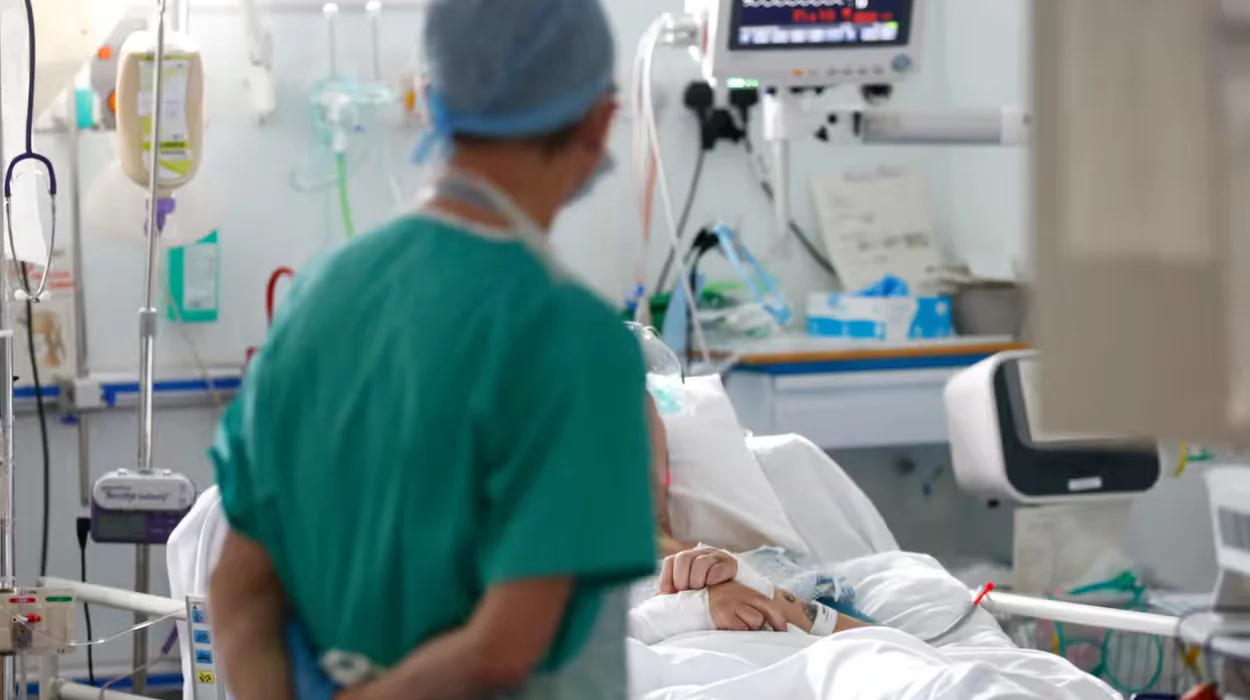UK (Parliament Politics Magazine) – The BMA says doctors deserve a 29% raise after Covid-era service and years of cuts, as strike action threatens NHS operations from 25 July.
As reported by The Guardian, the British Medical Association has backed resident doctors’ pay demands, calling it unfair for those who served during Covid to now face a real-terms pay cut.
Health Secretary Wes Streeting is set to meet BMA officials this week in a bid to avert five days of strikes starting 25 July. The union insists a 29% pay rise is essential to recover years of lost earnings.
What did Dr Emma Runswick say about post-COVID pay cuts?
Dr Emma Runswick, a resident doctor in Greater Manchester and deputy chair of the BMA council, said, “We are still down compared to even the pandemic in 2020.”
The deputy chair said the only “reward” doctors received for their efforts during the pandemic was a real-terms pay cut. She argued this was far from the appreciation shown when people clapped for NHS workers.
Ms Runswick was questioned on why the BMA based its pay demand on RPI, an inflation measure no longer officially recognised by the ONS. She was asked why CPI, the official and typically lower index, wasn’t used instead.
She responded that the government still relies on RPI “when it suits them,” citing its use in setting train fares, car taxes, and student loan interest rates.
Ms Runswick argued it was reasonable to consider rising living costs for resident doctors, formerly junior doctors, when assessing their pay.
What did BMA’s Tom Dolphin say about the 29% pay claim?
Tom Dolphin, the new BMA chief, insisted the 29% pay claim isn’t up for negotiation, saying it merely recovers earnings lost since 2008, not a real raise.
He blamed the five-day walkout on Mr Streeting’s failure to build on last year’s 22% increase with a new pay offer addressing the 29% claim.
Mr Dolphin added,
“Our expectation was that the [22%] would be the start of a journey that would keep us going until we’d reached the value we had in 2008. So, clearly, the return of value has stopped, and now it’s just marching on the spot. And we need to carry on that journey. It [29%] is reasonable because it’s based on the loss of value that we’ve had. The number is this big because [previous] governments serially ignored the BMA when we said this is building up a problem.”
What did Darren Jones say about public sector pay limits?
Darren Jones, the Chief Secretary to the Treasury, said unions such as the BMA and the Royal College of Nursing would not be granted any pay rise they demand.
He said,
“No, because – of course – public sector pay has to be affordable in the context of the broader economy. That’s why we need to make sure that we have a strong and resilient economy that is growing in order to have the tax receipt.”
Mr Jones criticised the previous government, saying it “weren’t even talking” to those working in public services.
He added,
“We’ve reset that relationship. We’ve honoured pay review body recommendations, which are an independent process in line with our affordability guidelines. And we have to be clear with the pay review bodies and public sector workers what is and isn’t affordable, which is what we’ve done.”
What did the Health Department say about the doctors’ strike?
A spokesperson for the Department for Health and Social Care said,
“It is disappointing that the BMA appear to be hardening their position, rather than working with the government to avoid strikes and the serious consequences they will have for patients. No trade union in British history has seen its members respond to such a generous pay rise with strike action, and the majority of BMA resident doctors didn’t vote to strike.”
They added,
“The Secretary of State has been clear that his door remains open to discussing with the BMA a range of issues that would improve the working lives of resident doctors. It is unreasonable and irresponsible for the BMA to refuse to even sit down to talk when they are threatening strike action which will have a serious impact on patients and other NHS staff. It is not too late to step back from the brink and work with the government to avert strikes and continue the work we’ve been doing together to rebuild our NHS.”

